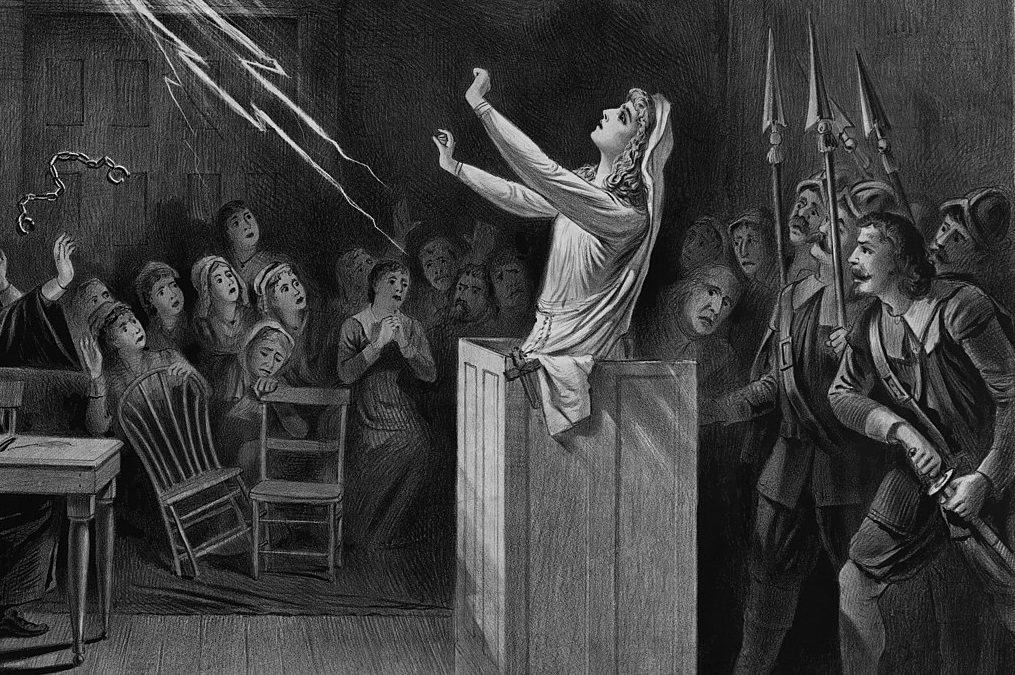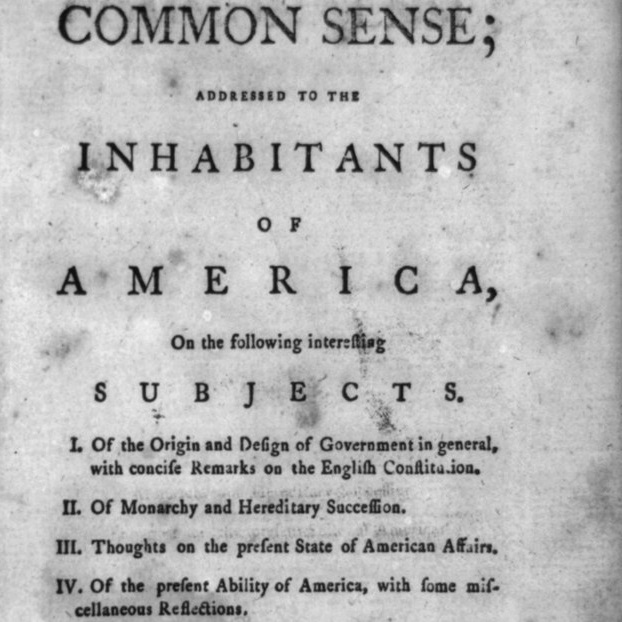
by Richard Subber | Apr 22, 2022 | American history, Book reviews, Books, History, Human Nature
toil and trouble….and craziness
Book review:
The Witches: Salem, 1692
by Stacy Schiff (b1961)
Little, Brown and Company, New York, 2015
498 pages
It may be that Stacy Schiff has neglected to include some fact or sentiment about the Salem witch trials, but I can’t imagine what it might be. The Witches is an expansive compendium of the whos and whats and whys and wherefores of this compelling—yet essentially impenetrable—story about a community gone crazy.
Maybe you had to be there to understand it.
It’s too easy to suggest that the McCarthy Communism hunting in 1954 is a modern analogy, but it won’t work. The whole dreadful McCarthy thing was a political football, approaching a sideshow even though it attracted the nominal attention of the nation and destroyed many lives.
The Salem witch trials (and the witch hunting that went on in neighboring towns) consumed the waking hours of all the townsfolk, who were deeply convinced that witches exist and that they were in league with satanic forces.
For my taste, Schiff tells too much of the story. I would have been content with a less detailed account. There is repetition that is dispensable.
For my taste, she struck a good balance between telling the story as it happened, and inviting the reader to suspect that the teenage girls were fooling all along, and that too many accusers had a personal reason to “get” the accused, and that too many religious and civic leaders who struggled unsuccessfully with their religious faith and the opposing impulses of their arguably decent selves had quickly figured out that the witch craze was a very nasty game.
You don’t need to read the whole book to figure out that there was some very destructive bogus stuff going on in the Massachusetts Bay Colony in 1692.
Maybe you don’t need to read the whole book to be convinced that some folks aren’t continuously motivated by a decent streak of good will and a desire to support communal well-being.
* * * * * *
Book review. Copyright © Richard Carl Subber 2022 All rights reserved.
Book review: Cleopatra: A Life
…don’t even think
about Gordon Gekko…
by Stacy Schiff
–
Writing Rainbows: Poems for Grown-Ups with 59 free verse and haiku poems,
and the rest of my poetry books are for sale on Amazon (paperback and Kindle)
and free in Kindle Unlimited, search Amazon for “Richard Carl Subber”
* * * * * *

by Richard Subber | Apr 16, 2022 | American history, Book reviews, Books, Democracy, History, Politics, Revolutionary War
He didn’t mention the “k” word…
Book review:
Common Sense
by Thomas Paine
Isaac Kramnick, ed., intro.
New York: Penguin Books, 1986
When I re-read a classic, I try to prepare myself for a couple “aha!” moments and one or two “uh oh!” moments.
I wasn’t disappointed in reading Common Sense this time.
Paine first published (anonymously) his 47-page “pamphlet” on January 10, 1776, after the shooting at Lexington-Concord and before the Declaration of Independence was approved.
Of course, everyone knows Paine argued for “independance” (his 18th century spelling).
This time around, it’s of interest to me to note that Paine very carefully avoided directly challenging King George III by name or even by spelling out his title—the text is full of “k—” references. Paine fully and explicitly described and condemned the bad things that old George was doing and likely to do.
Also, it’s of interest to me that Paine notably includes in his arguments for “independance” that America’s trade and international commerce would be buttressed by separation of the British colonies from Britain. He freely uses “America” and “Americans” in referring to the colonies and the colonists, although a huge majority of English colonists likely thought of themselves as “British” citizens.
Paine gives ample space to biblical themes.
Common Sense was widely and repeatedly republished in 1776 and thereafter—it was astoundingly popular in America, Britain, and elsewhere. Historians suspect that 75,000-100,000 copies were printed.
* * * * * *
Book review. Copyright © Richard Carl Subber 2022 All rights reserved.
The “dime novels” in the Civil War
Think “blood-and-thunder”…
–
My first name was rain: A dreamery of poems with 53 free verse and haiku poems,
and the rest of my poetry books are for sale on Amazon (paperback and Kindle)
and free in Kindle Unlimited, search Amazon for “Richard Carl Subber”

by Richard Subber | Apr 4, 2022 | Human Nature, Theater and play reviews, Tidbits
…ready to pop…
Patrick Swayze, Jennifer Grey
Director: Emile Ardolino
100 minutes
Oscar for Best Music, Original Song: “The Time Of My Life”
I want to go deeper than the “ugly duckling/Prince Charming/red hot final dance” story—for me, highlights of the film are Baby’s naiveté, and her ingenuous embrace of the very hot Johnny, and her eager awareness of her rising woman’s heat…
Some context: in 1987 many Dirty Dancing viewers would have been more than slightly discomfited by the matter-of-fact abortion episode, and perhaps nonplussed by Baby’s casual deception to come up with the $250 to pay for it. Wowee. It’s great to help out a friend of a friend and all, but that seems like a baffling stretch for a timorous young girl of Baby’s obvious unworldliness.
On the other hand, Baby’s hormones are ready to pop.
You know, you really can say “dirty dancing” in a nice way.
Alone with Johnny, in the prelude to intimacy scene, Baby suddenly opens up: “I’m scared of everything…I’m scared of who I am, and most of all I’m scared of walking out of this room and never feeling the rest of my whole life the way I feel when I’m with you.”
That’s a heartbeat. You felt it, too.
Here’s hoping that you’ve had a moment, an embrace, a volcanic new feeling of desire that you feared you would never feel the rest of your whole life.
I have.
And now I know I didn’t have to be afraid.
* * * * * *
Movie review. Copyright © Richard Carl Subber 2022 All rights reserved.
Book review: Tales from Shakespeare
the summaries by Charles and Mary Lamb…
–
My first name was rain: A dreamery of poems with 53 free verse and haiku poems,
and the rest of my poetry books are for sale on Amazon (paperback and Kindle)
and free in Kindle Unlimited, search Amazon for “Richard Carl Subber”
* * * * * *

by Richard Subber | Mar 21, 2022 | Book reviews, Books, History, Politics
Ignorance was bliss for a while…
Book review:
The Future of News:
Television,
Newspapers,
Wire Services,
Newsmagazines
Philip Cook, Douglas Comery, Lawrence Lichty, eds.
Baltimore, MD: The Johns Hopkins University Press, 1992
Yes, The Future of News invites instant comparison with ancient news.
Neither the editors nor the contributors mention the internet or the World Wide Web or blogs or social media. Who knew in 1992?
Note: on April 30,1993, a computer scientist named Tim Berners-Lee announced he had completed the source code for the world’s first web browser: WorldWideWeb.
Be prepared to feel sympathetic when you read the repeated optimistic assessments of the trends and possible futures of the news as we used to know it more than 30 years ago.
* * * * * *
Book review. Copyright © Richard Carl Subber 2022 All rights reserved.
Will the last monkey cry?
the new reality…
–
My first name was rain: A dreamery of poems with 53 free verse and haiku poems,
and the rest of my poetry books are for sale on Amazon (paperback and Kindle)
and free in Kindle Unlimited, search Amazon for “Richard Carl Subber”
* * * * * *

by Richard Subber | Feb 20, 2022 | My poetry, Poetry, Reflections
“…a masque of shades…”
Night watch
Waiting in winter
is easier done in darkness,
night’s hours pass,
for the lone watcher,
en passant, to ease the time,
a masque of shades,
neither droll nor dread.
Withal, the ice shines cold,
the snowy crust shines hard,
and star shine lights the way for
Orion and Aquarius
and Cassiopeia and the rest,
these watchers in the crystal sphere
will guard the transit of the moon,
will do for friends who pass the time
but will not tarry past the dawn.
November 5, 2018
Inspired by “Field,” by Roberta Marggraff in the Aurorean, Fall-Winter 2018-2019
My poem “Night watch” was published in my fourth collection of 55 poems, As with another eye: Poems of exactitude. You can buy it and my other poetry books on Amazon (paperback and Kindle), or get it free in Kindle Unlimited, click here
* * * * * *
My poetry. Copyright © Richard Carl Subber 2022 All rights reserved.
A poem about the right thing
…and the lesser incarnation…
“Vanity”
–
In other words: Poems for your eyes and ears with 64 free verse and haiku poems,
and the rest of my poetry books are for sale on Amazon (paperback and Kindle)
and free in Kindle Unlimited, search Amazon for “Richard Carl Subber”
Your comments are always welcome—tell me what you’re thinking.
* * * * * *




